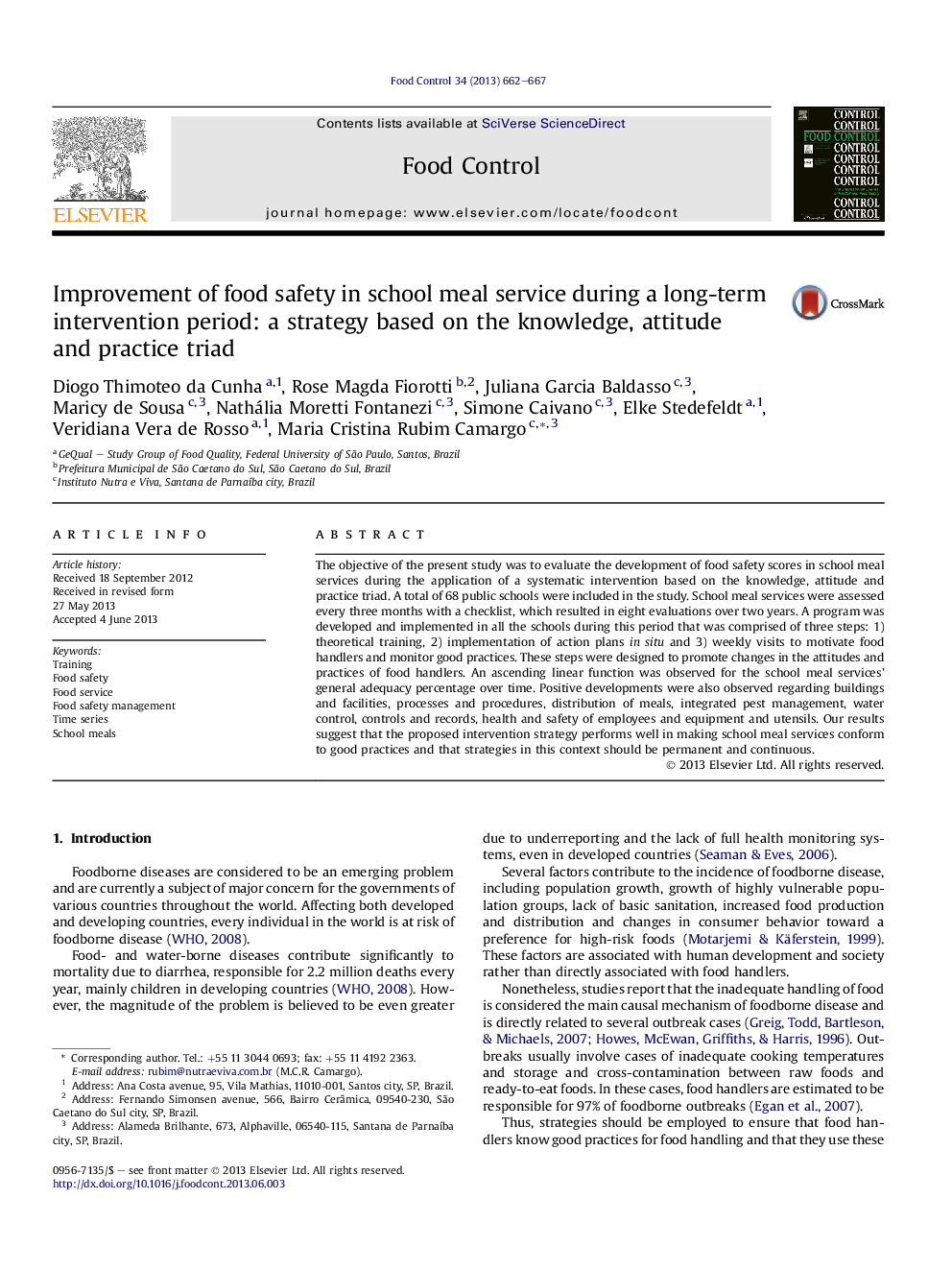| Article ID | Journal | Published Year | Pages | File Type |
|---|---|---|---|---|
| 6392410 | Food Control | 2013 | 6 Pages |
â¢A proposed intervention was tested in school meal services for two years.â¢Improvement in the adequacy scores was observed using regression models (p < 0.05).â¢The results support the development of interventions in the context of school meal services.â¢Interventions should be made permanent by health legislation to improve efficacy.
The objective of the present study was to evaluate the development of food safety scores in school meal services during the application of a systematic intervention based on the knowledge, attitude and practice triad. A total of 68 public schools were included in the study. School meal services were assessed every three months with a checklist, which resulted in eight evaluations over two years. A program was developed and implemented in all the schools during this period that was comprised of three steps: 1) theoretical training, 2) implementation of action plans in situ and 3) weekly visits to motivate food handlers and monitor good practices. These steps were designed to promote changes in the attitudes and practices of food handlers. An ascending linear function was observed for the school meal services' general adequacy percentage over time. Positive developments were also observed regarding buildings and facilities, processes and procedures, distribution of meals, integrated pest management, water control, controls and records, health and safety of employees and equipment and utensils. Our results suggest that the proposed intervention strategy performs well in making school meal services conform to good practices and that strategies in this context should be permanent and continuous.
